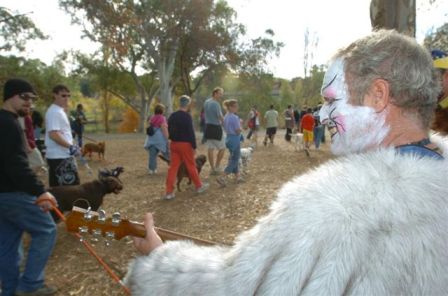Under-age sex laws 'putting NT kids at risk'
By Sara Everingham for AM
The Australian Medical Association (AMA) is warning that legislative changes in the Northern Territory could have a devastating impact on the health of many Indigenous children.
The Northern Territory Government says its Care and Protection of Children Act is all about keeping kids safe.
But the AMA is warning the act's mandatory reporting requirements go too far and Dr Paul Bauert from the AMA's Northern Territory branch is deeply concerned.
Until now, NT laws were similar to what operates in the other states; it was mandatory to report suspected child sexual abuse.
But now health workers must report sexual activity among under-16s to a team that includes police and staff in the Territory's department of health and families.
Failure to do so could result in a fine of up to around $20,000. And it is not just doctors who will have to report.
"This applies to everybody," Dr Bauert said. "Parents, brothers and sisters, mates."
The legislation has been in place for months but it was only late last week that the Northern Territory Health Department told staff to comply.
They were told to report anyone under 16 who is sexually active, even if that person's sexual partner is also under 16 or of the same age, and regardless of consent.
"Any person who has sexual intercourse with someone under the age of 16 is guilty of a crime and liable to imprisonment for 16 years," Dr Bauert said.
"There's no age defence, so if the person who was having sex with somebody under the age of 16 is 15, that is no defence.
"We are going to have young people not prepared to come seeking help in terms of contraception advice; they won't be coming seeking advice in early pregnancy, if themselves or their partner are likely to be charged with a crime."
Dr Bauert says patients will also think twice before seeking treatment for sexually transmitted infections.
They are particularly prevalent in the territory's Indigenous communities.
"So this too is going to lead to increased morbidity and increased deaths, particularly from disseminated gonococcal infection," Dr Bauert said.
Divided opinion
The Health Department's chief executive, Dr David Ashbridge has defended the move.
"There is no intent to limit medical services," he said.
"The absolute policy intent is to making sure the children who might be harmed are actually looked after by the society."
And the Territory's shadow attorney-general and child protection spokeswoman, Jodeen Carney, says the laws are needed.
"I've received various advice from people that not all doctors at all times report sexual abuse, or evidence of sexual activity," she said.
"The reality is, in any event, that doctors are obliged to report signs of sexual activity in children because it's not for them to undergo an investigation, it's for the police.
"And children 16 years or younger are unable to consent, because the law of the Northern Territory says that they can't."
But Dr Bauert says the old system was working.
"We were having young children confiding they were being abused, or at risk of abuse," he said.
"And proper action or appropriate action was being taken in the majority of cases."
But the old system frustrated crime authorities.
The Australian Crime Commission has been looking into Indigenous child sexual abuse and last year tried to use its powers to access the health records of eight Indigenous girls in the Northern Territory aged between 13 and 15.
They had been fitted with the Implanon contraceptive implant.
Their clinic refused to hand over the records, saying there was no evidence of abuse, and the clinic won the case in the Federal Court.
The Crime Commission would not comment on whether these changes would help its investigations.
The AMA will meet the Government this week to discuss its concerns but individual doctors are taking matters into their own hands.
The AMA has been told some doctors have stopped asking their young patients if they are sexually active.
Subscribe to:
Post Comments (Atom)





No comments:
Post a Comment